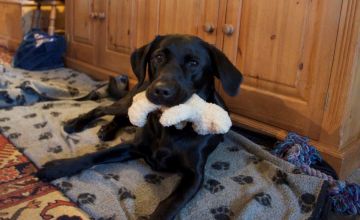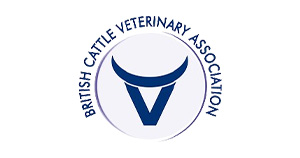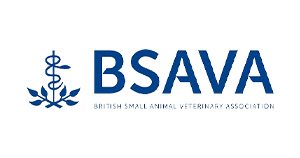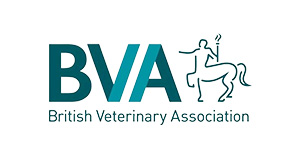Labradors are known for their large appetites
Labradors are known for their large appetites
Published on: Apr 23, 2022
Pickle’s Tale of Resilience and Recovery
Labradors are known for their large appetites, and many owners will be too aware that they are not at all fussy. So if one of the breed goes off their food and won’t stop being sick, we know that there is often something very wrong, and it usually is the dog’s non-selective appetite which has caused the problem in the first place. These symptoms can be caused by eating something from the bin or that they have scavenged from a walk, and it may mean that there is a blockage somewhere within the guts. However in Pickle’s situation, she had a more unusual obstruction, and her long time spent at the practice didn’t follow the classic route of a vomiting case.
Pickle is six years old, and had always been well behaved when it came to stealing food, or other things that she shouldn’t eat. She wasn’t one to chew up toys, or swallow socks, and she hadn’t been found with her head in the dustbin looking for chicken carcasses. So when she started vomiting many times over a weekend, and was examined as an emergency at the practice out of hours, a ‘foreign body’ – something to cause an obstruction in the stomach or intestines – wasn’t the number one suspect due to her habits and more mature age, and especially as nothing abnormal was felt in her belly. The black Labrador was given an anti-sickness injection, which settled her well over night, but once the next morning came she started to vomit again.
Pickle was still very bright, and even jumped onto the examination table in the consult room when she was re-examined the next day. As her symptoms were persisting, she was admitted for a blood sample and to be X-rayed. The blood results were normal and her X-ray showed no signs of an obstruction, and nothing abnormal could be felt in her belly the second time round, even whilst she was relaxed under sedation. Initially treated with supportive treatment for gastritis (a stomach upset), she was hospitalised over night with intravenous fluids and medication to settle her stomach.
However the next day, Pickle was quite subdued and had continued to vomit – however this had developed into more of a regurgitation, as she was bringing up small amounts of fluid with little effort or warning. After speaking to her owners, it was decided that the best course of action for Pickle at this stage would be to take her to surgery, to rule out any internal abnormalities, be they from ‘foreign’ materials or not.
In theatre, nothing was instantly obvious as unusual within her intestines – they generally all looked quite healthy – but on closer inspection, something was taking up a bit of room inside the duodenum, the first part of small intestine that leads from the stomach. With no other cause for the vomiting seen, this was investigated further by cutting into the intestine. A large amount of grass was found stuck within the walls and had formed a blockage all the way back to the stomach. This was removed gently, and resembled a clog of hair blocking up a shower drain! Her intestines and body wall were stitched back together, and she was left to recover from her operation.
However, over the next 24 hours her recovery didn’t go as planned. Normally hungry Labradors like Pickle would usually start eating during this time frame, even after a procedure like hers, but she remained subdued and more alarmingly she continued to regurgitate. Some patients need a little more time than others to recover, and their intestines may stop moving temporarily in a response to a previous obstruction and the surgery. However after a few days of supportive and intestine stimulating treatment, Pickle refused to improve.
Again, X-rays and blood samples were inconclusive, but due to a lack of response, she returned to theatre and underwent a second operation to examine her intestines. No additional blockages were found and her intestinal wound looked good, but there was a difference to her pancreas, the organ involved in digestion. The pancreas sits next to the duodenum in the belly, and as this part of her guts was blocked, it had become very swollen and inflamed. To try and alleviate this situation, her pancreas and intestines were bathed in warm saline, and after she was stitched up but before she was awoken from her general anaesthetic, a feeding tube was placed so that we could provide food straight into her stomach. This meant that if she didn’t feel like eating she would still become nourished and stronger, and a regular supply of food would help to keep her guts moving.
This time, Pickle improved nicely after her second anaesthetic and surgery, and although a little regurgitation continued and she still would not eat, she was fed regularly via her tube and responded well as she was hospitalised over the following weekend. By the Sunday, just over one week since she was first examined, she had started to eat by herself and the more she ate, the more her appetite returned.
The next day as she was bright and eating well, she was able to finally return home, much to the relief of her long suffering owners! Eventually she returned to her normal routine at home, and was able to have her feeding tube removed, which had come in handy to deliver her medications that she was refusing to take with her food! Now she is happy and eating well at home, and probably hoping that she doesn’t have to spend a weeks stay at the practice again!


Author –
Greg Elliot-Moustache
dog health, pet health, dog illness, veterinary care, animal health, pet emergency, dog surgery, foreign body ingestion, intestinal obstruction, pancreatitis, dog recovery, veterinary medicine
Discover the story of Pickle, a Labrador who faced a series of health challenges, including a mysterious intestinal blockage and subsequent pancreatitis. Learn about the complex journey of diagnosis, surgery, and recovery, as well as the importance of early intervention in veterinary care.
More Articles from Greg
Read More
Caring for your pet as we do our own

At Shepton and Wells Vets, we understand what your pets mean to you, and so our Pets team aim to care for each and every one of them as we would do our own.
We care about your pet
Our primary focus is keeping them fit, happy and healthy with comprehensive and effective preventative healthcare, advice and treatment.
We care about you
We aim to communicate clearly and honestly with you, and discuss different treatment options so that you can make the right informed choices for you and your pet.
We care about clinical excellence
We take pride in providing a high level of medical and surgical care, working together as a team to do the very best we can for your pet.











